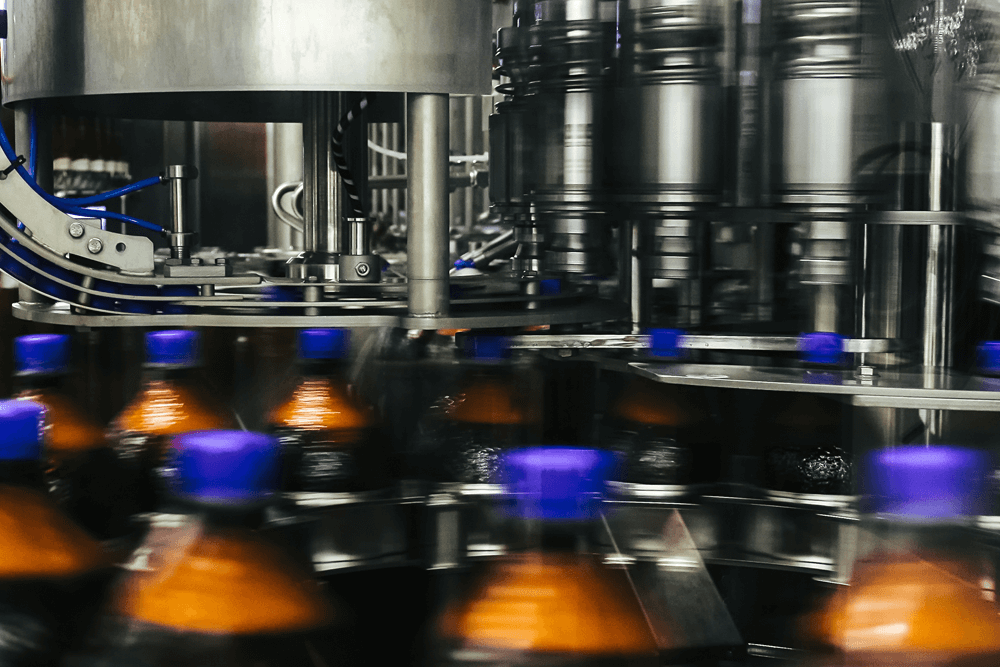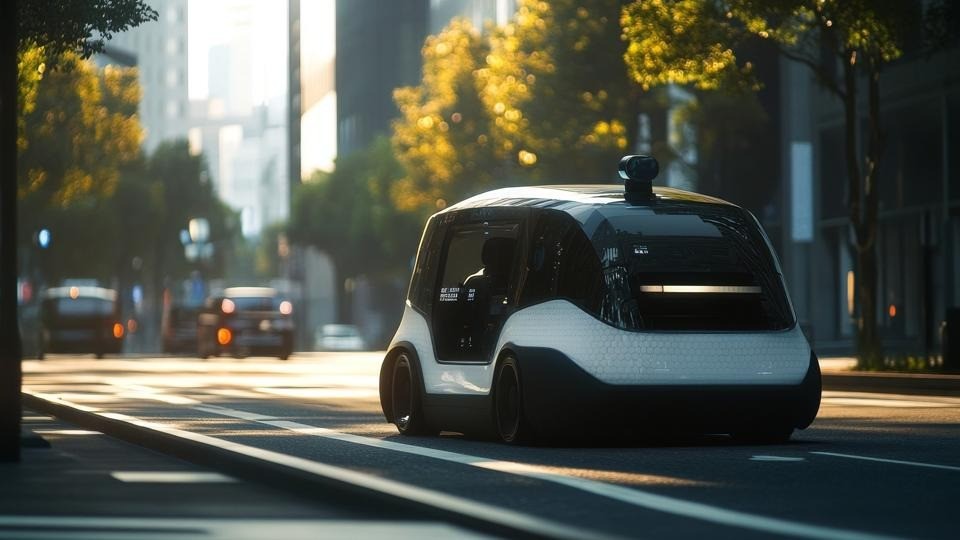The Fascinating Ways PepsiCo Uses Artificial Intelligence And Machine Learning To Deliver Success
2 July 2021
One business who realized that using artificial intelligence (AI) and machine learning is a business need, no longer a competitive advantage is PepsiCo. The food-and-beverage company behind brands such as Pepsi, Gatorade, Tropicana, Lipton, Frito-Lay, and Quaker sells products in more than 200 countries and brought in $64.7 billion in annual revenue last year. From robots to machine learning, PepsiCo uses AI and machine learning throughout the organization in many ways.

Snack Delivery Robot
There’s a six-wheeled mobile vending machine robot tooling around the University of the Pacific chockful of PepsiCo snacks and beverages from Hello Goodness—a healthier line-up that includes SunChips, Baked Lay’s and bubly sparkling water. Named Snackbot, these self-driving robots are a partnership between Robby Technologies and PepsiCo. Students can order their snacks from the Snackbot app, and then the robot will deliver it to more than 50 spots across the campus without charging a delivery fee. The bots have a range of 20 miles on a single battery charge, and they can even navigate at night, in rain or up curbs thanks to onboard headlights and all-wheel drive capabilities.
Snackbot represents the solution to the needs of strapped-for-time college students and their preferences identified through PepsiCo’s research. There are three to five Snackbots on campus to keep up with demand.
Manufacturing with Machine Learning
The Frito-Lay (a subsidiary of PepsiCo) manufacturing plant is benefiting from machine learning. One project uses lasers to hit chips and then listen to the sounds coming off the chip to determine texture. Algorithms process the sound and determine the chip texture to automate the quality check for Frito-Lay’s chip processing systems.
From this beginning, Shameer Mirza, senior research and development engineer at PepsiCo, realized several more applications of machine learning could impact process control within the factory. Next, Mirza developed a machine learning model that could be used with a vision system to be able to predict the weight of potatoes being processed. This led to considerable savings for the company because it no longer had to spend $300,000 per line (they had 35 in the U.S. alone) for weighing elements. Mirza’s systems used only a camera and the machine learning model and are essentially just additional data points collected with no additional cost.
Another project still in development would assess the “percent peel” of a potato after it had gone through the peeling process. By understanding this data, it can help the Frito-Lay team to optimize the potato peeling system. This project alone is estimated to save the company more than $1 million a year just in the United States.
PepsiCo is launching a global training course on advanced machine learning and computer vision for its internal research and development associates this year to broaden its team’s abilities to use these technologies to continue finding insights that will drive efficiencies in its manufacturing facilities.
Vera Streamlines the Hiring Process
PepsiCo used Robot Vera for the first time to phone and interview candidates for open positions in sales, as drivers and to fill factory vacancies in Russia when HR professionals needed to fill 250 jobs in two months. Vera was developed by Russian startup Stafory and is capable of interviewing 1,500 candidates in nine hours, a job that would take humans nine weeks.
Advanced speech recognition software and tools from Amazon, Google, Microsoft and Russian technology company Yandex allow Vera to make calls and screen candidates for open positions such as fork-lift operators, factory workers, and sales staff. Its software can scan CVs to determine if a potential candidate has the right experience for the position, can respond to yes and no answers, ask follow-up questions and send out follow-up correspondence. It can also forward transcripts of a call to a human HR specialist for further review. So far, the reception from the majority of candidates when dealing with the robot has been positive. There was a bit more hesitation from human HR professionals. It turns out one of the biggest hurdles is “reprogramming humans” to feel comfortable with the technology.
PepsiCo’s In-House Technology Platform Ada
Ada provides “augmented intelligence” that relies on human’s insight in combination with algorithms. The company expects this philosophy will lead to rapid learning. Ada can pull together data from a variety of sources to allow PepsiCo to better leverage the massive amounts of data it collects. Ultimately, Ada will be involved in all aspects of operations including innovation, design, research and price decisions.
Other areas that PepsiCo will put data to use is in product development and sales and marketing. The company has used social prediction tools that aggregate publicly available consumer conversations in combination with its own data to identify new products to bring to market. This represents a transition for the company to create insights from the data it has and focus it on actionable activities. As more and more data get layered, PepsiCo is able to identify trends and marketing placements.
Pep Worx: Big Data and Analytics Platform
The cloud-based data and analytics platform PepsiCo uses called Pep Worxhelps the company advise retail stores on the best items to stock, where to place them and what promotions to use. When the company wanted to launch Quaker Overnight Oats, it was able to identify 24 million households from a dataset of 110 million US households that it felt would be appropriate to market the product to. Then, PepsiCo identified the shopping venues that these households would be more apt to use and created promotions to appeal to that audience. This use of data and focusing on a very specific market helped drive 80 percent of the product’s sales growth in the first 12 months after launch.
Related Articles
Flying Taxis And Self-Driving Trucks Arrive In 2026: 6 Transport Trends To Watch
By now, “smart” versions exist of just about every home appliance, gadget and gizmos we can think of. However, manufacturers continue[...]
Technology in Action: My Key Takeaways on How AI and Quantum Are Accelerating Global Transformation
By now, “smart” versions exist of just about every home appliance, gadget and gizmos we can think of. However, manufacturers continue[...]
Sign up to Stay in Touch!
Bernard Marr is a world-renowned futurist, influencer and thought leader in the fields of business and technology, with a passion for using technology for the good of humanity.
He is a best-selling author of over 20 books, writes a regular column for Forbes and advises and coaches many of the world’s best-known organisations.
He has a combined following of 4 million people across his social media channels and newsletters and was ranked by LinkedIn as one of the top 5 business influencers in the world.
Bernard’s latest book is ‘Generative AI in Practice’.






Social Media